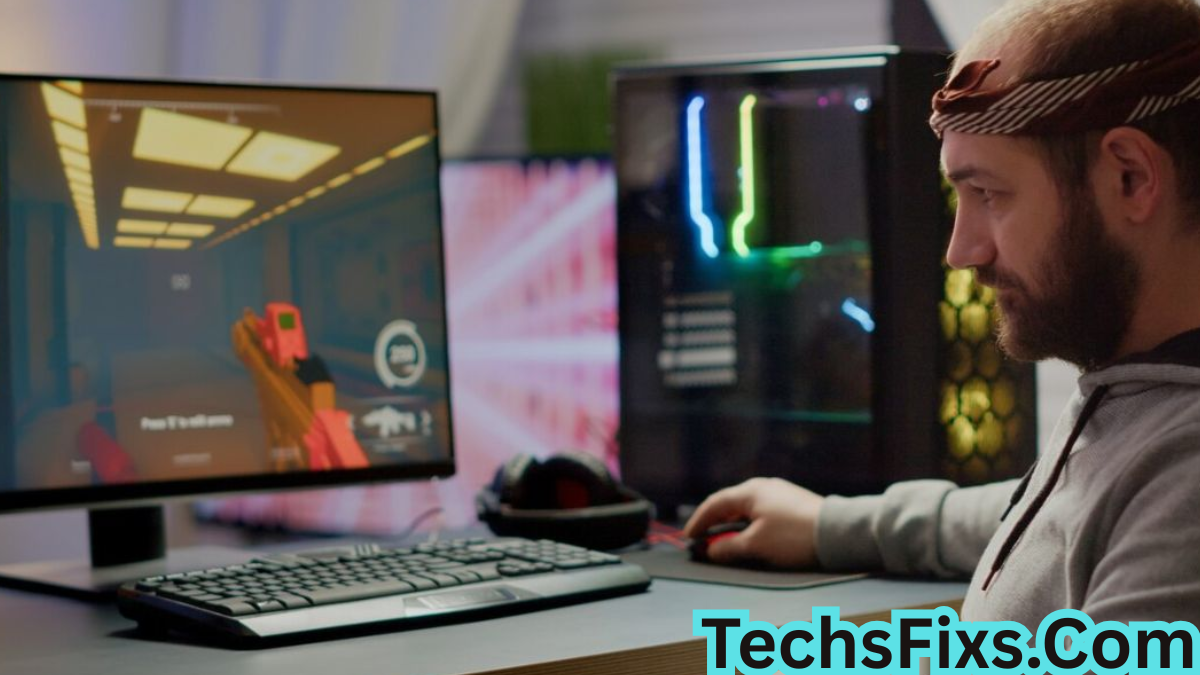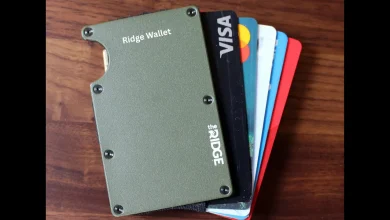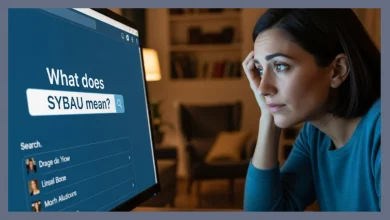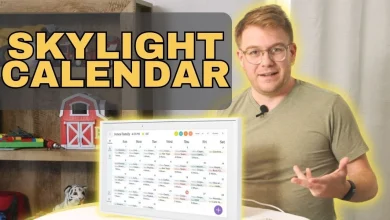Introduction to PBLinuxGaming and Its Influence on Tech Hack
Tech Hacks PBLinuxGaming In the ever-evolving world of gaming, the integration of Linux-based platforms has steadily gained ground among users who value open-source systems and customization. PBLinuxGaming stands at the forefront of this shift, offering an expansive repository of resources, modifications, and insights tailored specifically for Linux gamers. As more users migrate from traditional platforms like Windows to Linux for their gaming needs, tech hacks associated with PBLinuxGaming have become essential tools in optimizing both performance and compatibility. These innovations allow gamers to overcome native limitations, unlock advanced settings, and create immersive experiences tailored to their unique hardware and software configurations.
The Philosophy Behind PBLinuxGaming
At its core, PBLinuxGaming emphasizes the democratization of gaming through open-source principles. It encourages collaboration, transparency, and community support to bridge the compatibility gaps that often exist between mainstream games and Linux environments. Unlike proprietary systems that restrict user intervention, PBLinuxGaming welcomes deep system-level tweaks that empower gamers to take full control of their setups. This culture has naturally cultivated a diverse array of tech hacks, enabling users to modify kernel parameters, fine-tune graphics drivers Tech Hacks PBLinuxGaming streamline game installations using various compatibility layers such as Wine, Proton, and Lutris.
Optimizing Game Performance with Kernel Tweaks
One of the most impactful areas where tech hacks emerge in the PBLinuxGaming scene is kernel optimization. The Linux kernel, being open to modification, offers avenues to enhance gaming responsiveness and reduce input lag. Enthusiasts in the community often experiment with real-time kernels or low-latency kernels, modifying scheduler behavior to prioritize gaming processes. These adjustments can lead to significant improvements in frame rates and overall responsiveness, particularly in competitive titles where milliseconds matter. Gamers also employ CPU frequency scaling tweaks and I/O scheduler changes to allocate resources more efficiently during gameplay.
Enhancing Compatibility with Wine and Proton
For a long time, one of the major roadblocks for Linux gamers was the limited availability of native titles. However, tech hacks related to Wine and Proton, two powerful compatibility layers, have transformed this narrative. PBLinuxGaming supports custom Wine builds patched for better DirectX translation, improved Vulkan support, and specialized configurations for anti-cheat systems. Proton, developed by Valve, is frequently optimized within the community through tweaks to DXVK and VKD3D components. These tools allow users to play an ever-expanding library of Windows-exclusive titles on Linux with near-native performance and stability. Adjustments such as environment variable settings, custom launch commands, and shader pre-caching scripts are all part of the tech hacker’s arsenal in PBLinuxGaming.
Leveraging Lutris for Multi-Platform Game Management
Lutris is another powerful utility embraced by PBLinuxGaming aficionados. As a game management platform, Lutris simplifies the installation of games from different sources like Steam, GOG, and Battle.net, all while offering extensive configurability. Through Lutris, users can apply unique runner settings, choose specific Wine versions, and integrate third-party tools such as MangoHUD and vkBasalt. These integrations allow for real-time performance monitoring and post-processing effects like sharpening or color correction. Tech hacks within the Lutris ecosystem often include scripts that automatically apply game-specific fixes or set system parameters for maximum compatibility.
Custom Scripts and Automation
A defining feature of the PBLinuxGaming community is its reliance on custom scripting to automate otherwise complex processes. Bash scripts, Python utilities, and even GUI-based configuration tools enable users to install drivers, configure gamepads, or optimize display settings with minimal manual effort. These scripts are frequently shared and iterated upon within forums and Git repositories, making it easier for new users to achieve the same level of performance as seasoned Linux gamers. Tech hacks involving automation also reduce the likelihood of misconfiguration, offering consistent results across different hardware setups.
Advanced Graphics Driver Modifications
Another area rich in tech hacks is the customization of graphics drivers. Whether users rely on NVIDIA, AMD, or Intel graphics solutions, the PBLinuxGaming community provides extensive guides on tailoring driver behavior to suit gaming demands. For NVIDIA users, this could mean enabling NVAPI features through Proton patches or using third-party tools like GreenWithEnvy for fan and clock speed control. AMD users, on the other hand, benefit from the Mesa driver stack, where new features and optimizations are frequently backported. These adjustments help reduce graphical artifacts, improve shader compilation, and enhance Vulkan support—essential for modern game engines.
Gamepad and Peripheral Configuration
Linux-based systems sometimes struggle with peripheral compatibility, particularly with newer game controllers or input devices. PBLinuxGaming addresses this with a range of tech hacks designed to recognize and configure hardware correctly. Users may create udev rules, use SDL environment variables, or patch kernel modules to achieve seamless gamepad integration. Advanced setups even allow for dual-purpose configurations, where a controller switches roles based on input context. Force feedback and custom button mapping are other areas where community-developed tools play a crucial role, making sure that gameplay feels as intuitive as it would on a console or Windows system.
Utilizing MangoHUD and Performance Overlays
Monitoring system performance during gameplay is vital for both casual and competitive gamers. PBLinuxGaming promotes the use of MangoHUD, a Vulkan/OpenGL overlay that displays real-time performance metrics. Through minor configuration tweaks, gamers can monitor FPS, GPU load, temperature, frame times, and more. This data is invaluable for identifying bottlenecks or instability caused by driver issues, thermal throttling, or memory leaks. Users often create custom MangoHUD profiles for each game, tailored to their specific resolution, hardware limitations, and performance goals. This level of granularity ensures optimal efficiency and user satisfaction.
Audio System Enhancements
Sound quality and latency also play a crucial role in immersive gaming. PBLinuxGaming communities frequently exchange tips on configuring PulseAudio or PipeWire to reduce latency and improve spatial audio rendering. Tech hacks in this domain include altering buffer sizes, enabling real-time scheduling, and using plugins for 3D audio effects. For multiplayer games where voice chat is essential, users may set up echo cancellation, noise suppression, and microphone gain automation using tools like Cadence or JACK. These improvements result in a more polished and professional audio experience that competes with high-end gaming platforms.
Game Modding and Customization on Linux
Beyond performance and compatibility, PBLinuxGaming also explores the creative side of gaming through modding. With the right file permissions and directory structures, Linux users can install texture packs, gameplay overhauls, and community content without hassle. Tools such as Mod Organizer 2 and Vortex can be configured to work under Wine, allowing seamless mod management for popular titles. Users also share guides on symbolic linking and permission tweaking to make mod folders compatible with games running under Proton or Lutris. These tech hacks not only enrich the gameplay experience but also allow Linux gamers to participate fully in vibrant modding communities.
Overcoming Anti-Cheat Barriers
One of the more complex challenges faced by Linux gamers is the implementation of anti-cheat systems that are typically designed for Windows environments. Tech hackers in the PBLinuxGaming community have developed workarounds and monitoring techniques that allow certain titles to function without tripping these systems. Through kernel sandboxing, usage of containerized environments like Bottles, and selective Wine staging patches, users can bypass common detection flags while maintaining game integrity. Although not all anti-cheat systems are compatible yet, ongoing development within the community continues to push the boundaries of what’s possible on Linux.
Cloud Gaming and Remote Play Integration
As cloud gaming gains popularity, PBLinuxGaming users have begun to incorporate remote play and cloud-based services into their setups. By using services like Steam Remote Play or Moonlight, Linux users can stream games from powerful Windows-based systems or cloud servers to their Linux machines. Tech hacks in this arena include reducing latency via custom network configurations, using SSH tunnels, and compressing video streams with open-source codecs. These approaches ensure that even users with modest hardware can enjoy high-end gaming experiences by leveraging external resources efficiently.
Security and Privacy Considerations
Security is a foundational concern for many Linux users, and PBLinuxGaming ensures that gamers can enjoy their favorite titles without compromising privacy. Community-provided tech hacks include setting up sandboxed environments using Flatpak or Firejail, enabling AppArmor profiles, and restricting game telemetry through firewall rules. These techniques allow users to isolate games from accessing sensitive system data or phoning home with user analytics. Gamers who prioritize both performance and privacy benefit from the meticulous approach promoted by the PBLinuxGaming ecosystem.
The Future of PBLinuxGaming and Community Innovation
The pace of innovation within PBLinuxGaming shows no signs of slowing. With growing support from developers, improved driver ecosystems, and maturing compatibility layers, the landscape for Linux gamers is becoming more promising. Community-driven projects continue to inspire creativity and technical exploration. Future tech hacks may include AI-powered optimization tools, deeper Wayland support, or seamless container-based deployment of game environments. As the gaming industry becomes more inclusive of diverse platforms Tech Hacks PBLinuxGaming remains a beacon for those who value freedom, performance, and customization in their gaming experiences.
Conclusion
PBLinuxGaming is more than a niche within the Linux ecosystem—it represents a thriving culture of innovation, community collaboration, and technical mastery. Through a vast range of tech hacks, users can transform their Linux systems into powerful gaming platforms that rival commercial alternatives. From kernel tweaks and driver optimization to automation and privacy enhancements, PBLinuxGaming empowers users to break boundaries and redefine what’s possible in the world of Linux gaming. As this vibrant community continues to evolve, it paves the way for a more open and inclusive future in gaming—where every player, regardless of platform, can enjoy the thrill of the game on their terms.



